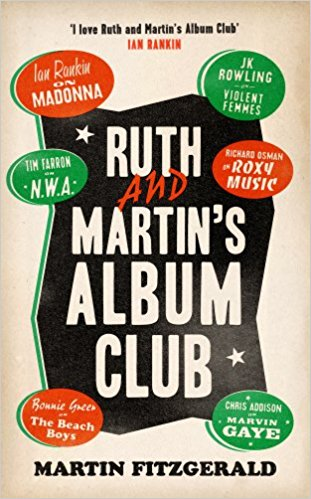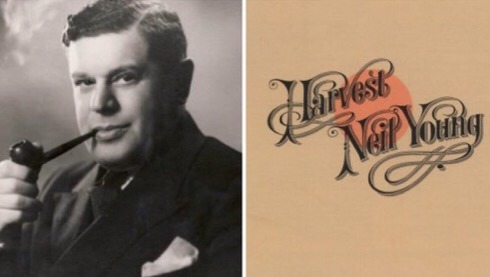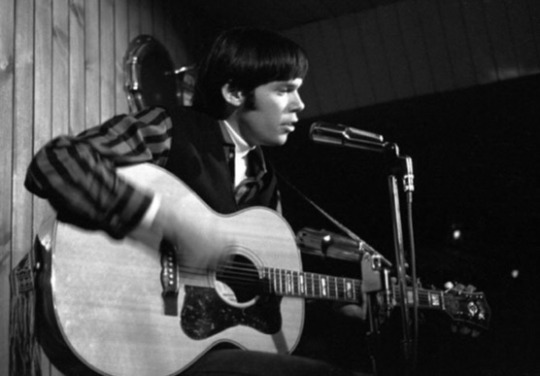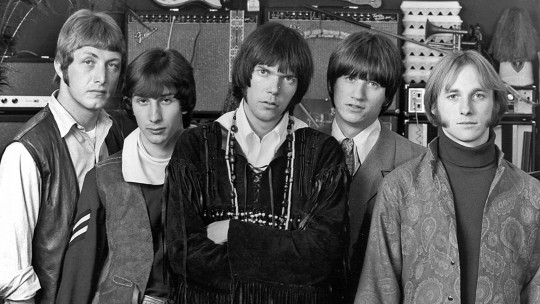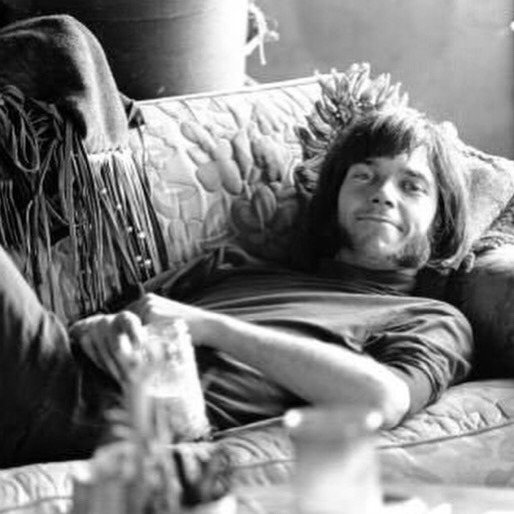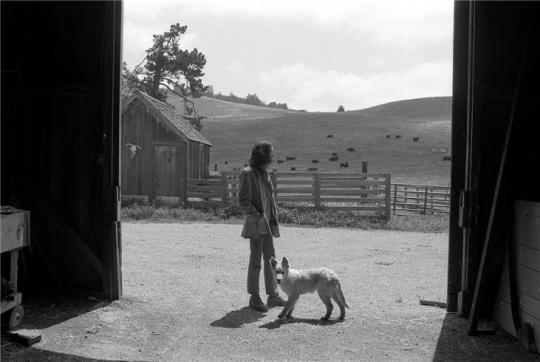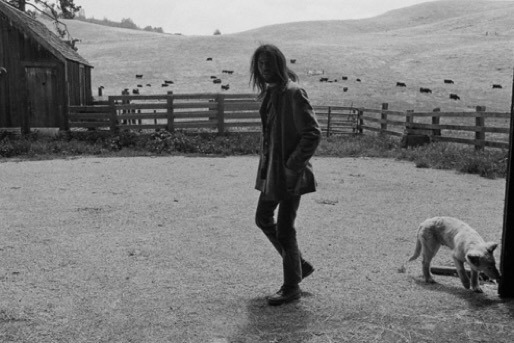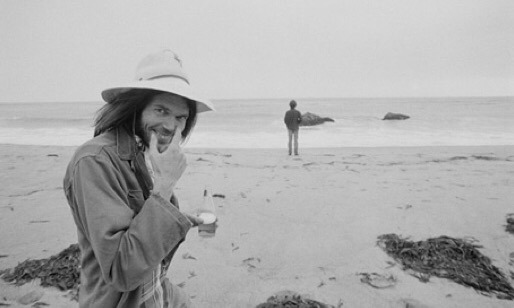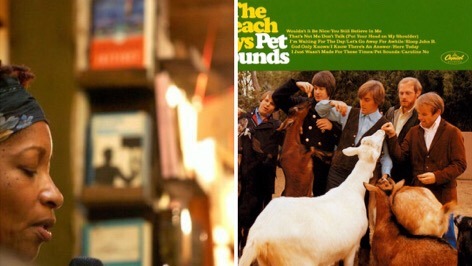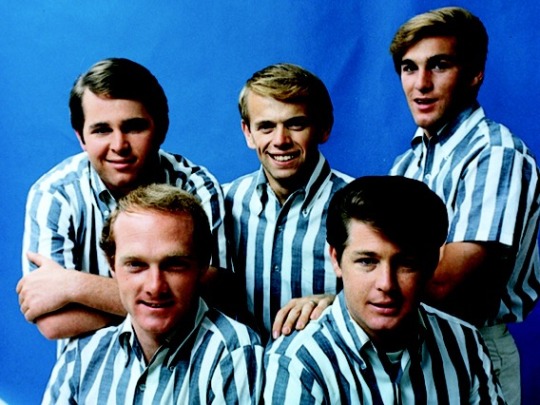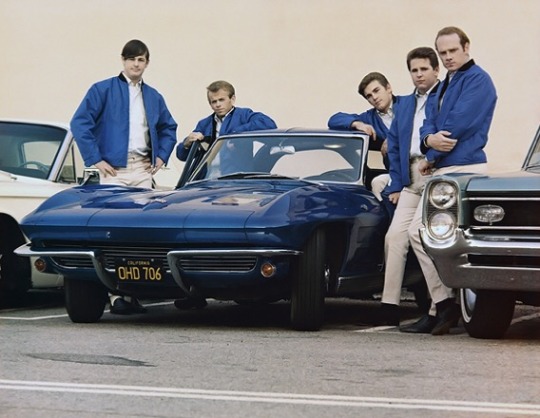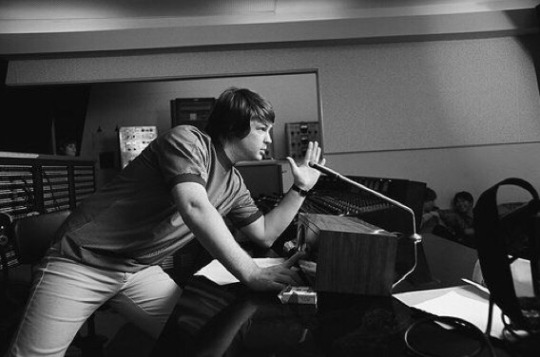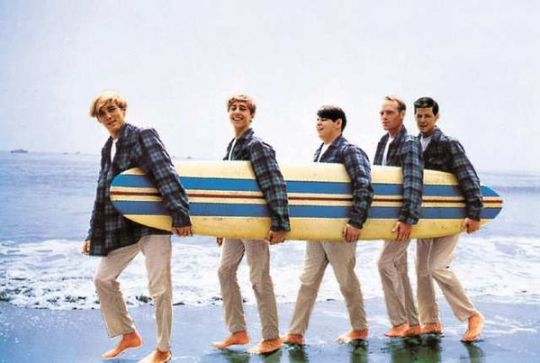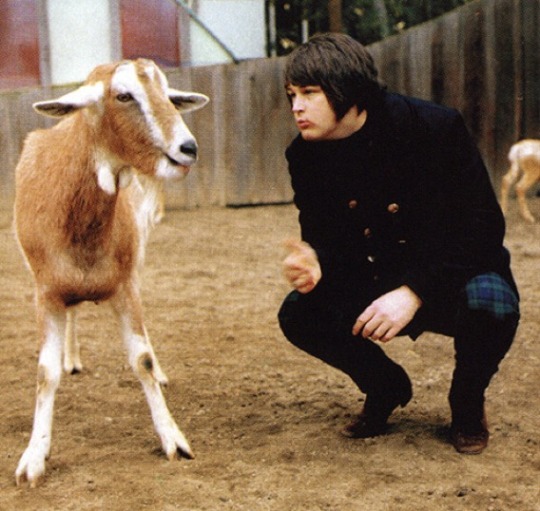1. The Headmaster Ritual
2. Rusholme Ruffians
3. I Want the One I Can’t Have
4. What She Said
5. That Joke Isn’t Funny Anymore
6. Nowhere Fast
7. Well I Wonder
8. Barbarism Begins at Home
9. Meat Is Murder
First time listener — Brian Koppelman
I’m a co-creator/executive producer/showrunner of the television series Billions. Before that I worked on a bunch of films like Ocean’s Thirteen, Solitary Man, Rounders, Runaway Jury, The Illusionist and I Smile Back.
Before all that, I was executive producer of Tracy Chapman’s first album.

Brian’s top three albums
I could list three Bob Dylan albums, and I wouldn’t be lying.
I could list three R.E.M. albums, and I wouldn’t be lying.
I could list three Lou Reed albums, and I wouldn’t be lying if one of them could be a Velvet Underground album.
Before we get to Brian, here’s what Martin thinks of Meat Is Murder
My favourite origin story. I can’t believe it’s taken me this long to tell it.
Anyway.
An eighteen-year-old Johnny Marr is in need of a singer. Despite his young age, he’s already been in a succession of failed bands. The usual story of the usual lads meeting up and giving it a go — giving it a go until it falls apart.
So he decides to turn it on his head.
He decides the rest of the band can wait. The bass, the drums, he’ll get to them in due course. They’re the easy bit. Before that, he needs a singer, a singer who can also write the songs and front the band.
And he’s heard of someone.
Someone that he met briefly at a Patti Smith gig three years before but has never come across since. A slightly odd, enigmatic character who is unemployed, has few close friends and spends most of his time in his bedroom. Somehow Marr thinks this might be his man and, in either an act of desperation or the most inspired piece of recruitment ever, decides to just turn up, uninvited, at his house.
Taking a mate along for moral support, he boards the number 263 bus in Manchester, resplendent in his best clothes to try and make a good impression — vintage Levi’s, biker boots and a US-style men’s flying cap that sits back from a tinted quiff. Yes, a tinted quiff. Imagine seeing that on a bus in Manchester in 1982.
‘Where’s he off to then? With his tinted quiff.’
'Dunno, probably going to form some band called The Smiths who will go on to become the most influential group of their time and inspire a religious devotion amongst their legion of fans. Give it a couple of years, this bus will be full of tinted quiffs. Mark my words.’
’Oh.’
Anyway, Marr and his mate get off the bus, head to 384 Kings Road and knock on the door. And nothing happens. They knock again. And nothing happens. Then, just as they’re about to leave, they hear the footsteps of someone slowly coming down the stairs and eventually the door opens. And there he is, with a cardigan and a quiff of his own — the twenty-two-year-old Morrissey.
Now as much as I love this story, we have to leave it for a moment so I can just give you more of an idea of who it was that came down those stairs that day.
So here’s the potted biography.
Like virtually all the pupils in his primary school, Morrissey failed his 11+ and was sent to a secondary modern school that specialised in preparing teenagers for the factory floor whilst simultaneously physically abusing them via an endless, and at times random, regime of corporal punishment. Basically that school in the film Kes. To save time, assume he went there.
Whilst other pupils were somehow hardened by the experience (there were accounts of some pupils fighting back and hitting the teachers) this definitely wasn’t the case for our hero, delicate flower that he is. He hated it, every minute of it. One his classmates has since eloquently said,
'He was too clever for us. We were all fucking dur-durs from the council estate fighting each other and robbing each other. He shouldn’t have been in that school.’
Another classmate has said that the young Morrissey avoided the bullishness of the playground and, during breaks, just wandered around the school’s corridors on his own, 'looking at things intently’.
Any attempt he made at social inclusion outside of school backfired too. He once went to watch Manchester United play and fainted because he thought George Best was beautiful. He once went to a fairground too, but someone head butted him for no reason.
So, naturally, he withdraws into his shell and provides his own curriculum. And it’s all the things we know and love about him — Oscar Wilde, British New Wave cinema, James Dean, Sandie Shaw, more Oscar Wilde, Republicanism, sixties girl groups, Feminism, The New York Dolls and Oscar Wilde. As a result, he leaves school with barely a qualification to his name but an exhaustive knowledge of the aforementioned subjects.
It’s worth noting here how much Morrissey is a product of the education system of his time. Had he been born in the nineties it’s reasonable to assume that he would have avoided the brutality and misery of a secondary modern and become one of the 40 per cent that now end up at university, where he could mix with like-minded souls and develop his interests further. No doubt he’d have done a degree in English literature and, instead of being the lead singer in The Smiths, he would now be working at Buzzfeed creating listicles of hamsters that resemble Lord Byron.
But he never goes to university. Instead, he goes from dead end job to dead end job, punctuated by large periods of unemployment. All the while his lifelines being music and writing. He becomes the scourge of the music press, dispatching missives from his bedroom about all the things that they’re getting wrong, constantly writing letters to them and submitting his own reviews whether they want them or not — generally being an incorrigible pest. He also has a string of pen pals, back bedroom relationships with people around the country, where he displays early evidence of the narcissism that his detractors are all too happy to accuse him of. He opens one of his letters with —
'So pleased that you enjoyed my last letter. Why don’t you just admit that every word I write fascinates you?’
So here he is in 1982, a Lee Harvey Oswald character, a legend in his own mind if not quite in reality. A lonely, depressed, obsessive writer with an overdeveloped sense of his own destiny.
I’m not even joking with that comparison by the way. Look at these lines from Oswald’s diary —
‘Watch my life whirl away. I think to myself, “how easy to die” and a sweet death, (to violins).’
See what I mean?
If only a great guitarist had knocked on Oswald’s door in November 1963, the course of history may have been different. Maybe they did, maybe he wasn’t in.
Morrissey was in though. Of course he was. As he’s said since with customary drama, 'I was just there, dying, and he rescued me’.
So here we are, back on the doorstep, and now you have more of an idea who came down the stairs that day.
Morrissey invites Marr in and they go up to his bedroom where he sees a life-size cutout of James Dean, a bookshelf full of Wilde, Delaney, and Sillitoe and a load of seven-inches from Cilla Black to The Fall. It’s like Johnny Marr has walked into the bedroom of the biggest Morrissey fan in the world — which, in some respects, he has.
Marr picks out the B-side of a Smokey Robinson single, puts it on, and about an hour later they decide to form a band. Simple as that. The next time they meet, about a week later, they write The Hand That Rocks the Cradle and Suffer Little Children. Simple as that. They sit down and write two songs that will appear on the first album. Within a year of them meeting they’ve been signed by Rough Trade and their first single, Hand in Glove is released.
It’s incredible really, the extent to which there is no trial and error and nothing is discarded. They rush out of the blocks, two finished articles meeting each other and just getting straight down to it. Morrissey’s lyrics and Marr’s guitar — developed in isolation but coming together and working straight away. To put this into context, Lennon and McCartney met in 1957 and it took them five years to write Love Me Do. And, let’s face it, Lennon and McCartney were not known for wasting their time.
Morrissey and Marr then audition a load of drummers who fail to impress until Mike Joyce turns up, powered by magic mushrooms, and wins them over with his 'energy’. Andy Rourke follows suit on bass shortly afterwards and there you have it — The Smiths. Marr got to them in due course, they were the easy bit.
Over the next five years, the time it took Lennon and McCartney to release one single, The Smiths release 108 songs, four studio albums, three compilation albums and a live album. A phenomenal level of output made all the more remarkable by how brilliant it is. In fact it’s so good, so consistent, that the ten worst Smiths songs are better than any other bands ten worst songs - a bizarre award category that I acknowledge i’ve just made up..
On top of the recorded output they left a cultural mark too, which, ironically, took hold amongst the students of the colleges and universities that Morrissey himself missed out on. Whilst their devotion was tribal, The Smiths were anything but. From the commonality of their name, the mundanity of their dress, all the way to their pure pop sound, they were entirely inclusive. Neither goth, nor punk, nor new wave — they defined 'indie’ before it was even a term. They allowed people like me to dance with a cardigan stretched over my hands, with a fringe that covered a multitude of sins, with a load of other kids that were different, different just like me. Those halcyon days of the UK indie disco before Give It Away by The Red Hot Chili Peppers brought along a load of kids wearing shorts, who mostly danced with their hair, and generally ruined the whole thing because we were too soft and shy to do anything about it. The bastards.
But Morrissey. Our hero.
My dad absolutely hated him. Physically repulsed by a topless Morrissey, he once turned off Top of the Pops, complaining that he was trying to eat. But I loved him. Not in the religious, devotional way that Smiths fans are often accused of. I’m not vegetarian or celibate, and I’ve got huge issues with the film Saturday Night Sunday Morning. No, it wasn’t any of the baggage. It was him, just him.
He was one of the greatest front men I’ve ever seen, having way more fun than all the other eighties pop stars. Whilst his lyrics may have reflected a time when he was 'dying’, the success and adulation that followed very much brought him to life - ripping his shirt open and proposing, doing a pirouette with a load of flowers in his back pocket. Simon Le Bon wasn’t doing any of that, was he?
No, of course he wasn’t.
But Morrissey was. A back bedroom casualty that opened the door to a great guitarist and grasped his opportunity as if his life depended it. As if his very life depended on it.
And who knows, maybe it did.
Martin Fitzgerald
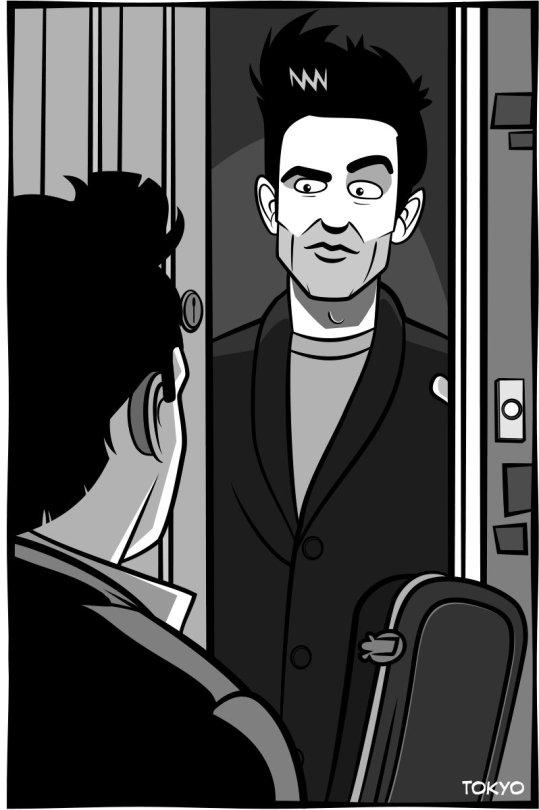
So over to Brian, why haven’t you listened to it? WHAT’S WRONG WITH YOU??????
There’s no way for me to talk about The Smiths without talking about R.E.M. first. Because R.E.M. saved my life.
Overly dramatic? Maybe. But as we are talking about The Smiths, I think overly dramatic is fine. Called for even.
And anyway, that’s how it felt, nineteen years old, driving around freezing cold Boston, Massachusetts in a Jeep CJ-7 with broken windows, the music of Michael Stipe, Peter Buck, Bill Berry and Mike Mills the only thing keeping me from turning the damn thing right into the Charles River.
I had come to their records a bit late; Fables of the Reconstruction had just been released. Before, in high school, I was a heavy metal fan — Van Halen, Iron Maiden, AC/DC — and a fan of American rock and rollers like Bruce, John Cougar and Pat Benatar. But then, college, a bad breakup, driving through the snow in the busted-up Jeep, and a friend handing me Murmur with the following instructions: 'Put it on while you are doing something else, cleaning, studying, reading, and just let it kind of seep in. They’ll become your favourite band.’ (And no, it wasn’t you, Martin, though it sure as fuck sounds as if it could have been).
I did as ordered, the album did as promised, and R.E.M. and I were, forevermore, bound together.
From there, I dove headlong into The Replacements, The Cure, Hüsker Dü, and back into The Clash and Wire and The Velvet Underground and Lou and every other band of that lineage. Every other band, that is, except The Smiths. I avoided The Smiths with the same focused determination I used to avoid the girl who had put me in a perilous state of mind in the first place.
Here’s why: I didn’t think you were allowed to like both Morrissey and Michael Stipe. Somehow, I had got it into my head that they were rivals, that Morrissey, with his British intellect, witty literary references and arch demeanor, was staking a claim for voice of his generation, our generation, when I had already made the decision that Mr Stipe was that man.
This belief was reinforced when I’d come across an interview with Morrissey and look at pictures, or when I’d be at some concert and a guy with a God Save the Queen shirt would be standing next to me, posing as he smoked clove cigarettes, and acting as superior as I believed Morrissey would act were he standing there with us. I mean, sure, I was posing too, in my black jeans, black T-shirt, black boots way, but I knew deep down that I meant it. And he was just pretending.
As the years went on, my generalised antipathy for The Smiths dissipated. I’d see a picture of Stipe with Morrissey and think, 'huh’. When I’d hear The Smiths spun at a party or on radio, I’d recognize Johnny Marr’s brilliant playing, and when I’d catch a lyric, I’d smile, sometimes, and admit to myself that Morrissey was, in fact, every bit as clever as he thought he was.
But something in me, some vestigial unasked for loyalty, prevented me from ever buying or streaming a Smiths album. Prevented me from ever really giving them a chance.
Until now.
You’ve now listened to it at least three times, what do you think?
The First Listen
I want to like this. That’s the thought running through my brain as I slide the iPhone into its speaker cradle and hit play.
Then the music starts. Jaunty and emotional at the same time.
I’m lying in bed, lights are off, it’s late at night, and my plan is to allow the music to seep in as I drift off to sleep. I do this every night. Usually with my favourite bands playing. I start earlier than usual this time, because I am meant to actually listen to the entire thing before sleep. I succeed. But also fail. Which is to say that I do make it through every single song. But I also cannot make myself like it.
The voice, the affect, the whole thing grates on me. I can hear that it is a sturdy record. That the guitar playing is excellent, that the melodies are catchy, that the thing has a unified tone and is, distinctly, a work of art.
It just doesn’t appear to be a work of art I like. Yet.
This is, after all, just the first listen.
The Second Listen
On a bicycle, riding downtown on the path adjacent to New York City’s West Side Highway, the Hudson River and New Jersey to my right, all of Manhattan to my left.
Earbuds in, nothing to distract me from the music, nothing but Morrissey and me gliding along together.
This time, The Smiths sound like The Smithereens, only without the raucous urgency. And I realize that there is no garage rock influence on the band at all. The music I love often feels like it might come apart at the seams. This doesn’t. It feels thought out, planned, executed at a very high level. Boring. Even the folk music I love has a recklessness about it. It’s missing here.
I ride on to my destination, starting to understand that it might not just be my atavistic dislike of Morrissey. I might just not like what The Smiths do.
The Third Listen
At home. On the couch. This time, with lyric sheet in front of me.
And it turns out that Morrissey, the lyricist, is my favourite part of the band. He is, without a doubt, every bit the wordsmith he thinks he is. Important subjects, deeply considered, personally revelatory and universally significant. I understand the lineage from which he comes, the poets from the past with whom he is engaging, the way it must have hit like-minded kids of the era.
I respect the fucking hell out of it. But I still don’t actually enjoy it.
Would you listen to it again?
Nope.
But I wouldn’t turn it off if you put it on.
A mark out of 10?
It is a record of high quality and purpose. And so an objective mark would be 8.
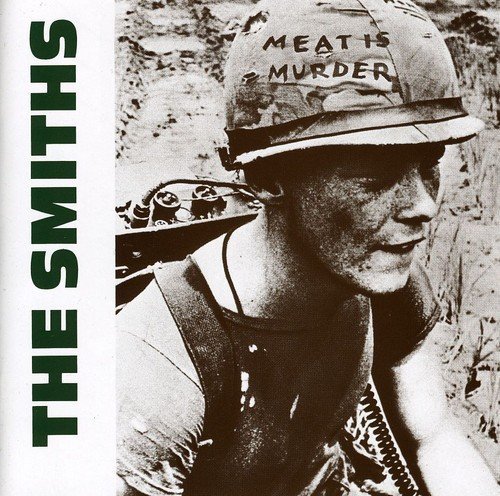
So that was a little preview of our upcoming book.You can pledge for it at the link below and if you do so before May the 5th then you’ll be able to see you name in ink - or e-ink if you go for the digital version.
Thanks
Martin
X
